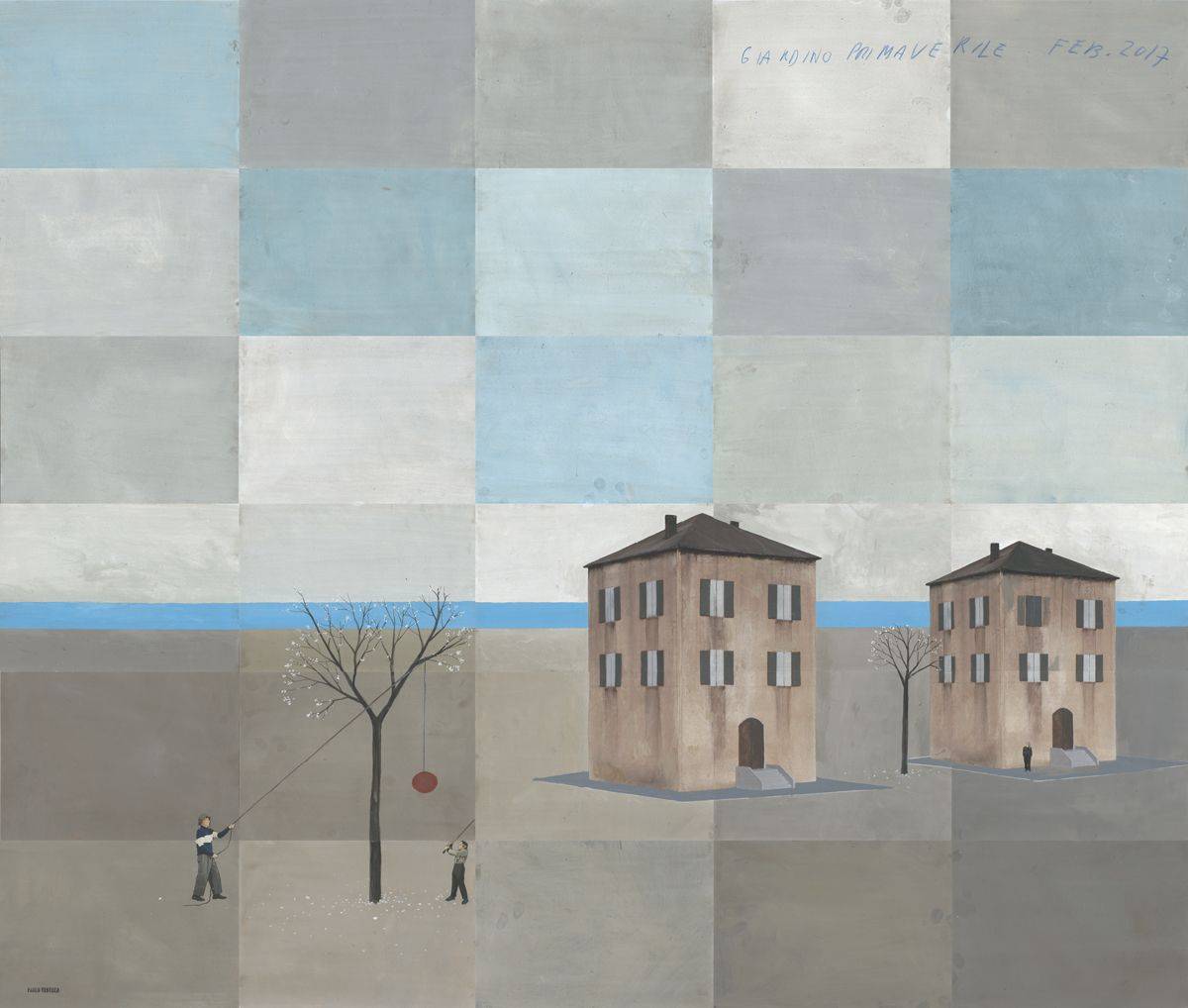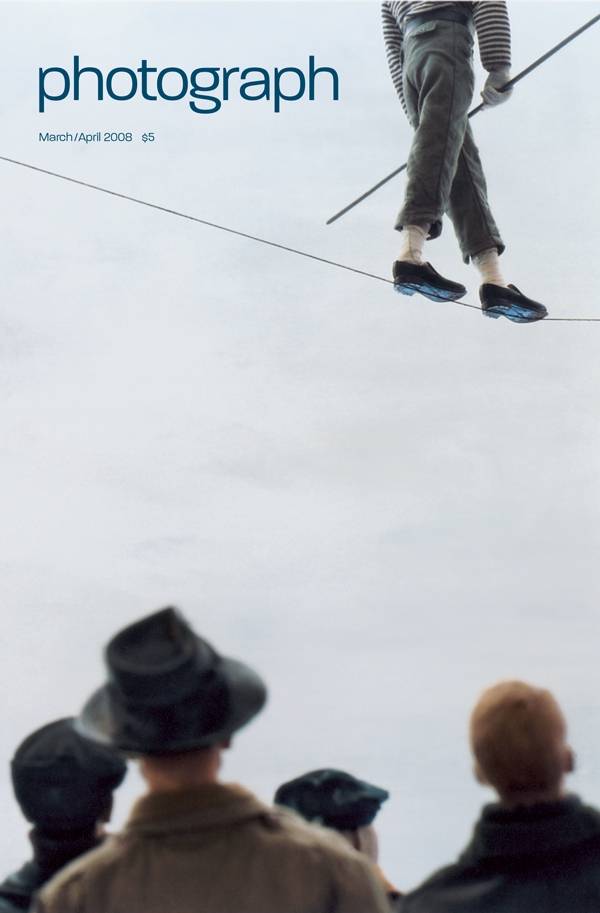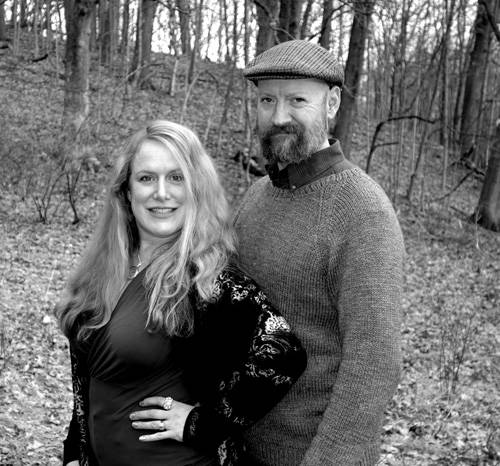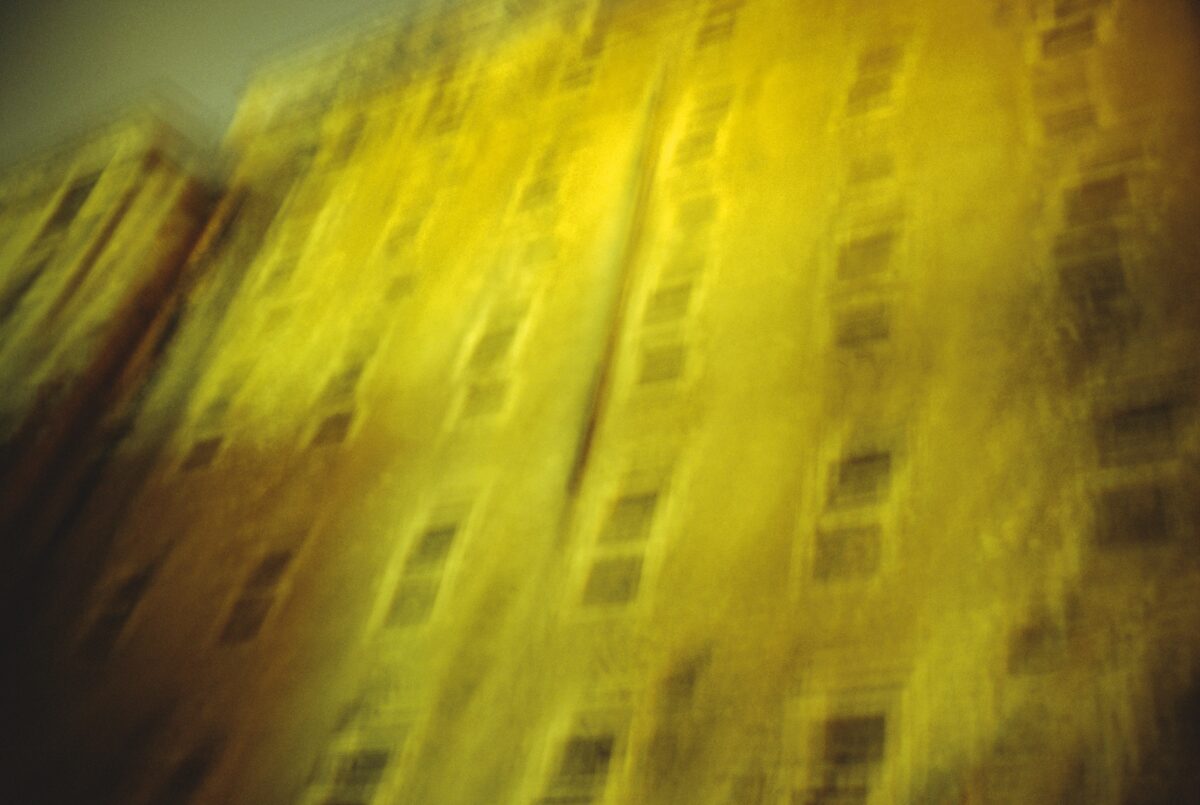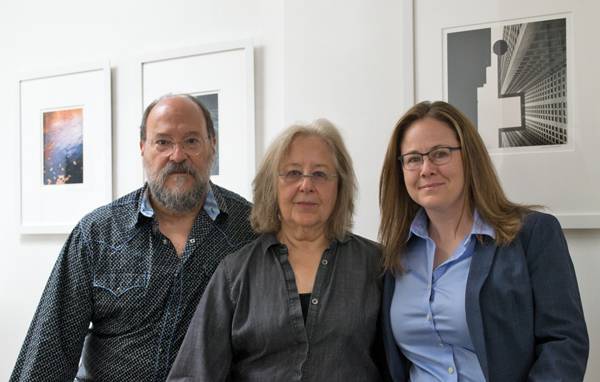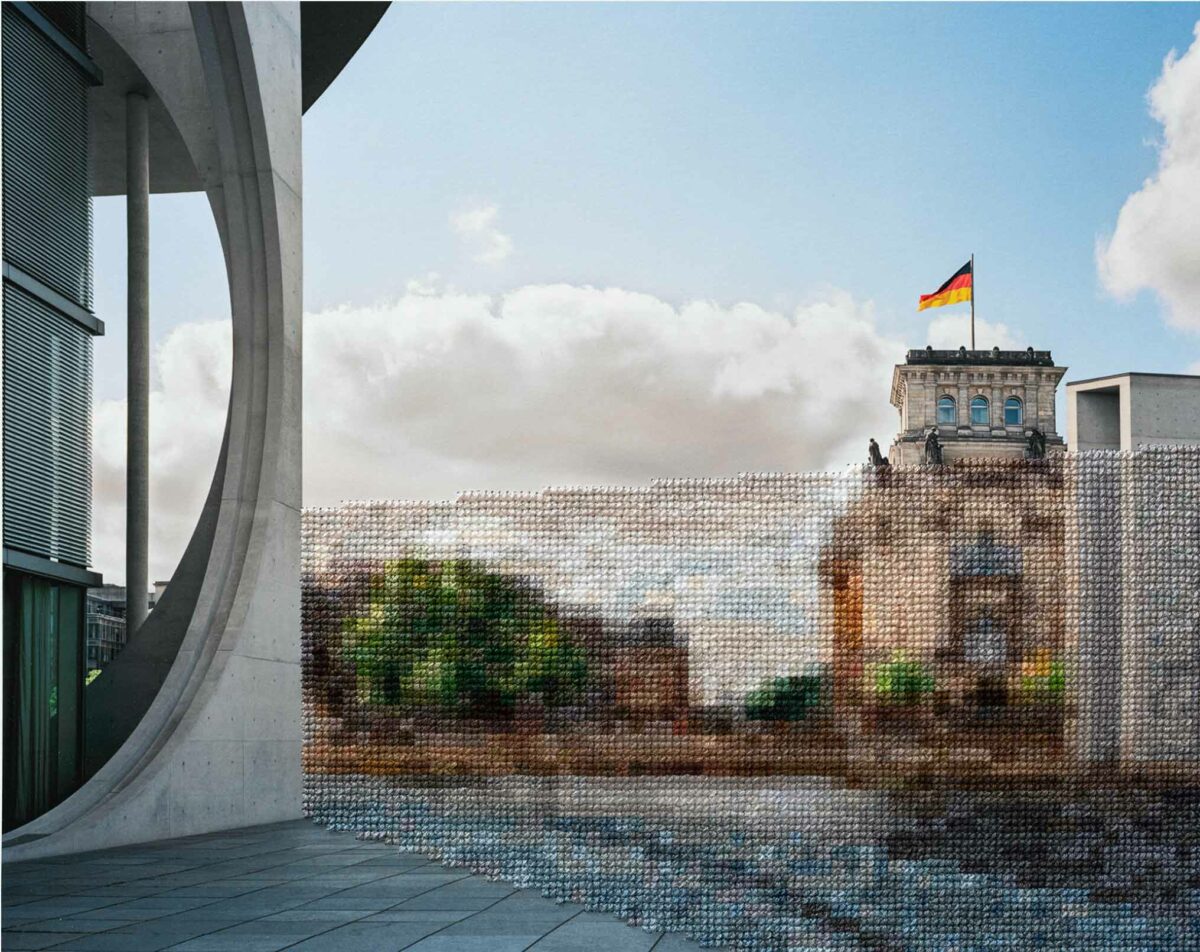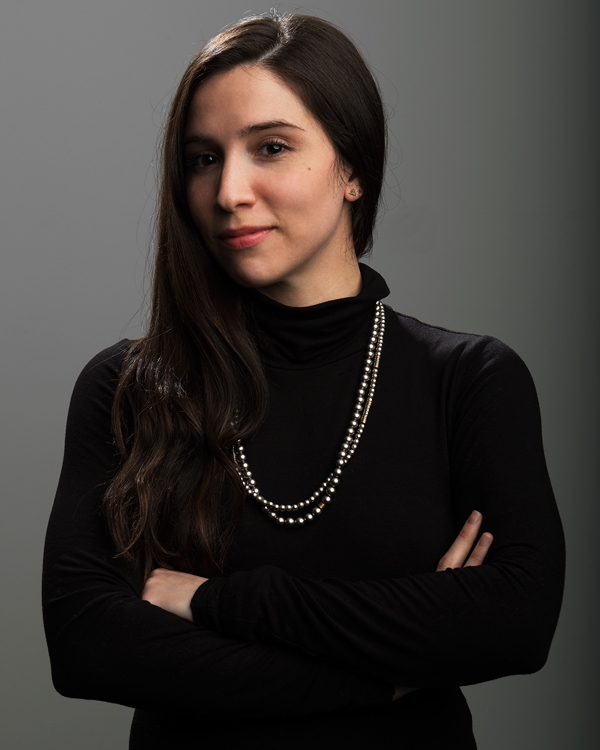

The narrative, hand-painted and collaged photographs in Paolo Ventura’s exhibition La Città Infinita, on view this past fall, are theatrical, even cinematic: Ventura’s pictorial expression of the city channels the aesthetics of Neo-Realist filmmakers such as Federico Fellini and Michaelangelo Antonioni. Ventura’s mise-en-scene is a disembodied cityscape where blank widowed buildings all but float above empty plazas often are punctuated by collaged images of the artist himself.
Ventura’s photographs artfully weave together elements of truth and fiction into oblique scenarios – he walks alone through a deserted cityscape, fights another male (himself) with a knife, or juggles. Often his back is to the picture plane, seemingly striving for anonymity. In Sogno Invernale #2 (Winter Dream #2) he poses with his wife, who is naked; their backs are to the viewer, yet he turns to look back over his shoulder.
References to the cinema and art are both obvious and indirect. Signs that spell out the word Cinema crown some of his buildings. Perhaps the most subdued image – one of two that are devoid of figures – is Cinema de Via Correggio. Here, from a low vantage point we look over a city wall to a building topped by a red CINEMA sign. The other, Maciste in Cacanza (Maciste on Vacation) depicts a deserted barge against a barren backdrop. Maciste, which means a strong man or a Herculean figure, is one of the oldest recurring figures in Italian cinema.
Ventura’s process is labor intensive: the photographs constitute a grid of individually painted, equally scaled sections. At close range, surprising details are revealed – louvered blinds at the window, leaves on a rooftop, a small lamp hanging on the side of a building.
In the end it is La Città Infinita which is the protagonist of his photographs. His buildings jut out into empty space in obstinate perspective, like actors in abandoned stage sets. As in many Neo-Realist films, one can feel a palpable tension between the characters and their settings. Ventura has written, “I’ve always loved the city…I like the city outside of its walls, running away as if liberated….I would have liked to live in the same city without having ever left. As a child I thought it was infinite.”



